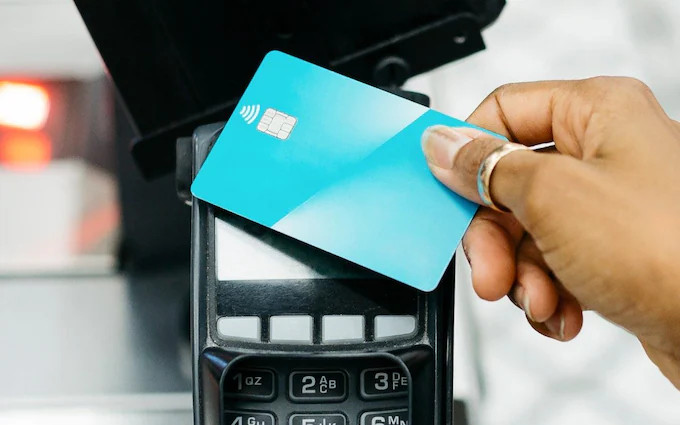Credit cards can be powerful financial tools when used strategically. In the UK, savvy consumers can leverage these cards to maximise tax benefits. Understanding the intricacies of how credit cards impact taxes at a high level can be crucial for both individuals and businesses looking to optimise their financial health.
By taking a closer look at the potential benefits, savvy users can make informed decisions that may contribute significantly to their financial plans. In this blog post, we’ll explore various aspects such as earning rewards effectively, tracking expenses for tax purposes and the importance of choosing the right card to maximise your returns.
Understanding the tax implications of credit card usage

When people think of credit cards, they’re often focused on spending limits and interest rates. However, they can also offer significant tax advantages. First and foremost, it’s important to acknowledge that credit card rewards, such as cashback or points, generally don’t attract tax in the UK because they are considered a discount rather than income.
The next step in understanding credit card tax implications is considering how they can aid in financial tracking and compliance with tax regulations. Many cards offer detailed statements and spending categories, which can make it easier to keep track of deductible expenses. For those self-employed or running a business, this feature is invaluable when it comes time to file taxes.
Earning rewards with minimal tax implications
One of the main attractions of using a credit card frequently is accumulating rewards, such as cashback or loyalty points. In the UK, these are usually not subject to taxation, making them an attractive way to get something back on your purchases without needing to calculate a tax impact. When cardholders strategically focus on using their cards to gain these rewards, it can lead to significant savings over time.
Firstly, to earn rewards effectively, always be sure to select a credit card that aligns with your spending habits. Many cards offer specific rewards for particular purchases like groceries, travel, or dining out. By selecting the cards that benefit your frequent purchase categories, you can optimise the amount of cashback or points you accrue.
Tracking expenses for optimal tax returns
Efficient expense tracking via credit cards isn’t just about gaining rewards; it’s essential for optimising tax returns too. For businesses, every expense documented lays the groundwork for potentially greater deductions. A critical advantage of using credit cards is the detailed monthly statements they provide. These can be directly used for record-keeping, ensuring accuracy in financial tracking which is vital for an accurate tax filing.
Moreover, automated expense categorisation offered by many credit card companies can provide additional insights. This feature is helpful for both personal finance geeks and small business owners. By classifying each transaction, you can more easily prepare for tax assessments and make well-informed budgeting choices throughout the financial year.
Choosing the right card for maximum benefits
Selecting the appropriate credit card is instrumental for reaping tax benefits effectively. With a myriad of options available, each boasting varied perks and interest rates, choosing one that complements your spending pattern and financial goals can make all the difference. To begin with, assess what rewards align best with your lifestyle and professional needs.
It is also beneficial to consider the card’s annual fees versus the rewards on offer. While some might come with higher fees, the rewards they provide could potentially exceed these costs. It’s a balancing act that requires a comprehensive view of your expected expenditures and the potential returns. Moreover, for business users, some cards offer enhanced benefits in business-related categories, helping to turn everyday spending into valuable rewards or cashback.
Identifying the best credit cards for business expenses
When looking to optimize credit card use for business-related tax advantages, selecting a card specifically designed for business expenses is a strategic move. These cards often provide features specifically geared to business needs such as higher credit limits, expense tracking capabilities, and employee card options.
Business credit cards frequently provide tools for better financial management. Enhanced reporting features can provide detailed insights into spending patterns and help identify areas where savings can be made. This not only aids in informed decision-making but ensures that businesses adhere to their financial plans, keeping expenses aligned with budgetary commitments.
Considering alternative payment methods
While credit cards offer numerous benefits, exploring alternative payment methods is also wise when aiming to optimise tax efficiency. Alternatives like debit cards, bank transfers, or digital wallets may serve well in situations where the simplicity or immediacy of payment is paramount. Debit cards, for instance, sometimes offer rewards similar to credit cards, though typically they won’t have the same breath-taking scope.
Digital wallets, which have gained prominence in recent years, offer certain conveniences and can be integrated with various reward schemes. Payments made through these services can also be tracked easily, ensuring that financial records remain comprehensive and up-to-date. While rewards programs on these platforms are typically less lucrative than on credit cards, they present another viable option especially for individuals who prefer using mobile-first solutions.



